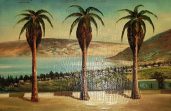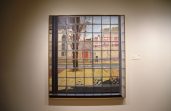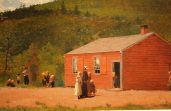Fly Boys
A True Story of courage
by
James Bradley
Reading this book, I almost feel that the author is in pain to write it. He has an important story to tell, and is well qualified to tell it, but seems to hate what he has to write.
I prefer to review books that I can also recommend, especially as I now live in a world where I no longer feel compelled to finish “bad” books; and this section is entitled: Favorite Books. Fly Boys is not a bad book, but nor is it one that I would necessarily recommend, unless you have an amazingly high tolerance for what I call apologetic history, which I do not.
This book is well written and researched, and tells a story which we should all know. However, because of the gruesome nature of the story, and the author’s genuine appreciation of the nation, from which the villains come, he is constantly undermining what is a piece of history, which for the sake of the hero’s, of the story, the Fly Boys, should be brought to light in honor.
James Bradley is the author of Flags of Our Fathers; a homage to his modest father who took part in raising the American flag over Iwo Jima, on February 23, 1945, an act photographed by Joe Rosenthal, for which he won the Pulitzer Prize in photography and the honor of having created the most reprinted image in the history of the world. After the success of his first book, James Bradley says he received countless ideas from people who knew a story he should tell, one of those people, author Iris Chang, told him that he should contact Bill Doran, regarding information which might interest Bradley.
Bill Doran was in possession of transcripts from war crime trials, which he had attended and which had remained classified until 1997. Those documents, which detailed the death of eight Flyboys, who had been shot down over the waters near Chichi Jima, an island 150 miles away from Iwo Jima; the horror of the Flyboys story is not only how they were treated before their deaths, but the cannibalism involved, after their deaths.
The author goes to great lengths to expound upon the Japanese military culture, which intentionally treated its members with great cruelty, believing the hardships, degradations, and violence would make them better warriors. He also spends a great many pages telling his reader how humanity, in general, and Americans specifically, are also guilty of war crimes – a fact, in my opinion, irrelevant to the history this book tells. I already know that “war is hell”.
On page 62, of Fly Boys, Bradley prints a monologue from Enomoto-san, where he describes coming across a woman, in a village in China, who spoke Japanese, and pleaded for mercy. Mr. Enomoto-san, says that it had been months since he had been to a “Comfort Station”, a prison camp where women/girls were forced into sexual slavery, being raped by forty to seventy men a day, given only one day off a month, for a medical exam, thus his first thought was to rape the woman, which he did. When he was finished raping her, he butchered her body, eating her flesh and sharing it with the men under his command. The story is relayed without remorse; though I would have difficulty believing a person who could commit such atrocities, would be capable of remorse.
There are repeated stories of cannibalism by the Japanese, not only against their enemies but each other. The author tells us the Japanese partook in cannibalism believing it would make them better warriors, and because those in command had refused to supply those in the field with sufficient food, and thus starvation led to cannibalism. On pages 228-229, we read that apparently, the “problem” was so wide spread that official policy is drafted, telling the soldiers that they are permitted to eat their enemies but not their colleagues.
I want a book of history to enlighten me, and this one did, thus I remain conflicted on my recommendation to you. The author covers a great swath of information, from the history of American military aviation to President George Bush’s reaction upon returning to the area, in the Pacific, where he was shot down, not all of it relevant to the eight executed Fly Boys.
As I came to the end of the book, I wondered if a book had been written about Stalin or Hitler’s exterminations of millions, with such an apologetic nod to those who carried out their superior’s desires, if it would have been as well received and tolerated as Fly Boys?











